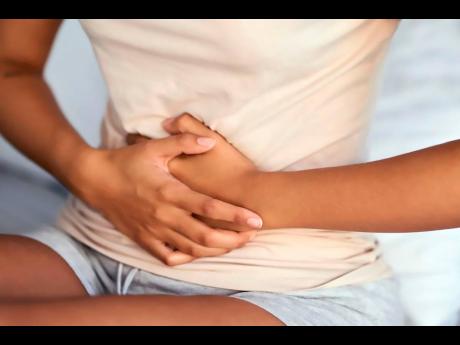Michael Abrahams | COVID-19 vaccines and disrupted menstrual cycles
Several of my patients and female friends have told me they have noticed a disruption of their menstrual cycles after being vaccinated for COVID-19. Colleagues of mine have also been receiving similar reports. The symptoms include periods returning earlier than expected, being delayed, or the period following vaccination being heavier than usual or prolonged. There are also reports of menopausal women experiencing vaginal bleeding after getting the jab.
A search of the medical literature and media reports confirms that these phenomena have been observed and reported overseas as well. In the United Kingdom, over 30, 000 reports have been made to the Medicines and Healthcare Products Regulatory Agency (MHRA) scheme, the body to which reports of adverse effects are submitted. In the United States, researchers Kate Clancy and Katharine Lee have collected more than 140,000 such reports. Stress is known to affect menstruation, and the pandemic has been a source of stress for many. However, the temporal relationship between vaccination and the onset of anomalous menstrual symptoms strongly suggests that the vaccines may have a causative effect.
Fortunately, the changes are usually temporary, and in the majority of cases resolve spontaneously after one or two cycles, and there is no evidence that these changes will have any impact on a person’s future fertility. Victoria Male, lecturer in reproductive immunology, recently stated in an editorial in the British Medical Journal ( BMJ), “In clinical trials, unintended pregnancies occurred at a similar rate in vaccinated and unvaccinated groups. In assisted reproductive clinics, fertility measures and pregnancy rates are similar in vaccinated and unvaccinated patients.” She also stated that menstrual changes have been reported after both mRNA (Pfizer and Moderna) and adenovirus- vectored (AstraZeneca and Johnson & Johnson) vaccines, and that this suggests, “… if there is a connection, it is likely to be a result of the immune response to vaccination rather than a specific vaccine component”.
IMMUNOLOGICAL INFLUENCES
Explanations offered by some immunologists include immunological influences on the hormones driving the menstrual cycle, and that by initiating an immune response in the body, the resulting transient inflammation may affect the ovaries, temporarily altering their hormone production. Also, immune cells in the lining of the uterus are involved in the cyclical build-up and breakdown of the tissue there, and changes in the behaviour of the immune system, such as those which follow vaccination, can affect this process.
Platelets, or thrombocytes, are small components of our blood that are important for the formation of clots and the prevention of bleeding. A low platelet count, thrombocytopenia, will therefore facilitate excessive bleeding. In a letter to the editor of the BMJ, Hamid Merchant, subject leader in pharmacy at the University of Huddersfield, suggested that post-vaccination thrombocytopenia may play a role in abnormal vaginal bleeding after COVID-19 vaccine administration. Indeed, the European Medicines Agency has listed thrombocytopenia as a ‘common’ side effect (i.e., one in 100 to one in 10) of the AstraZeneca vaccine. It is also a frequent observation after vaccination with the Pfizer and Moderna mRNA vaccines.
In her BMJ editorial, Male stated that common side effects of COVID-19 vaccination listed in the MHRA include a sore arm, fever, fatigue, and myalgia (muscle pain), but that changes to periods and unexpected vaginal bleeding are not. Based on the number of cases reported, she said, “robust research into this possible adverse reaction remains critical to the overall success of the vaccination programme”.
LACK OF TRANSPARENCY
She makes a good point. One of the concerns being voiced about COVID-19 vaccination, and a contributing factor to vaccine hesitancy, is that there is less than acceptable transparency regarding possible adverse effects. There is already an unfounded belief by some that the vaccines adversely affect fertility, and being uninformed about this possible, albeit temporary, complication does not inspire confidence in the authorities responsible for the institution of vaccination programmes.
Women, trans-men, and non-binary individuals with uteri should be forewarned of the possibility of abnormal vaginal bleeding for several reasons. For example, if they are informed that abnormal bleeding is possible but usually short-lived, if they do experience it, they will be mentally prepared and will likely not panic. If they are planning a sexual encounter soon after vaccination, they will at least know that their plans may be interrupted. If they already have issues with abnormal menstruation, a discussion with their doctor may lead to them being prescribed medication to offset the possible effects of vaccination on their cycle. For example, if their menstrual flow is usually heavy, they may be given drugs to lessen their blood loss during the period following vaccination. Also, if women are given a heads up, they may choose to carry extra feminine hygiene products, such as extra absorbent tampons and pads, at the time of vaccination and in the following weeks to adequately manage any accidents that may occur.
Although abnormal bleeding may be experienced following vaccination, instructions should be given to seek medical attention if the problems persist. Regarding post-menopausal bleeding, all cases should be investigated to rule out a more ominous cause.
Now the National Institutes of Health has announced that it is funding research into a potential connection between COVID-19 vaccination and changes in menstruation. It is about time.
Michael Abrahams is an obstetrician and gynaecologist, social commentator, and human-rights advocate. Send feedback to columns@gleanerjm.com and michabe_1999@hotmail.com, or follow him on Twitter @mikeyabrahams.


